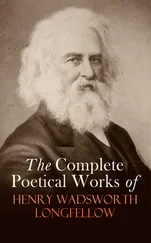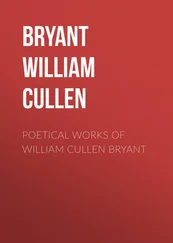James Beattie - The Poetical Works of James Beattie
Здесь есть возможность читать онлайн «James Beattie - The Poetical Works of James Beattie» — ознакомительный отрывок электронной книги совершенно бесплатно, а после прочтения отрывка купить полную версию. В некоторых случаях можно слушать аудио, скачать через торрент в формате fb2 и присутствует краткое содержание. ISBN: , Жанр: foreign_antique, foreign_prose, foreign_poetry, на английском языке. Описание произведения, (предисловие) а так же отзывы посетителей доступны на портале библиотеки ЛибКат.
- Название:The Poetical Works of James Beattie
- Автор:
- Жанр:
- Год:неизвестен
- ISBN:http://www.gutenberg.org/ebooks/41760
- Рейтинг книги:5 / 5. Голосов: 1
-
Избранное:Добавить в избранное
- Отзывы:
-
Ваша оценка:
- 100
- 1
- 2
- 3
- 4
- 5
The Poetical Works of James Beattie: краткое содержание, описание и аннотация
Предлагаем к чтению аннотацию, описание, краткое содержание или предисловие (зависит от того, что написал сам автор книги «The Poetical Works of James Beattie»). Если вы не нашли необходимую информацию о книге — напишите в комментариях, мы постараемся отыскать её.
The Poetical Works of James Beattie — читать онлайн ознакомительный отрывок
Ниже представлен текст книги, разбитый по страницам. Система сохранения места последней прочитанной страницы, позволяет с удобством читать онлайн бесплатно книгу «The Poetical Works of James Beattie», без необходимости каждый раз заново искать на чём Вы остановились. Поставьте закладку, и сможете в любой момент перейти на страницу, на которой закончили чтение.
Интервал:
Закладка:
James Beattie
The Poetical Works of James Beattie
MEMOIR OF BEATTIE,
BY THE REV. ALEXANDER DYCE
"Heard you that Hermit's strain from Scotia borne,
'For virtue lost, and ruin'd man I mourn?'
Who may forget thee, Beattie? who supply
The tale half-told of Edwin's minstrelsy?"
The subject of this memoir was born on the 25th of October, 1735, at Laurencekirk, in the county of Kincardine, Scotland. His father, James Beattie, who kept a small shop in the village at the same time that he rented a little farm in the neighbourhood, was a man of considerable talents and acquirements: 1 1 "At his leisure hours he cultivated the muses. A journal kept by him, as well as some specimens of his poetry, are still in the possession of his descendants. This last circumstance is the more worthy of being noticed, as it proves that Dr. Beattie derived his poetical turn from his father." – Bower's Life of Beattie , 1804, p. 2.
his mother, too, was distinguished for her abilities. Our author, James, was the youngest of the six children of this respectable pair.
After his father's decease, which happened when he was only seven years old, his mother, by means of the emoluments derived from the shop and the farm, was enabled to bring up her family in comfort. In the management of her affairs she was assisted by her eldest son, David, a youth of eighteen, who generously and affectionately relinquished all other pursuits for that of promoting her welfare and happiness, and who appears to have fostered his brothers and sisters with an almost parental care. James was placed at the parish school of Laurencekirk, which was then in some repute, and of which, about forty years before, Ruddiman, the famous grammarian, had been the master. At this time he had access to few books, except those which the minister of the village (the Rev. Mr. Thomson) kindly lent him, and which he read with avidity. It was then that he first became acquainted with English versification in Ogilby's Virgil. Even then he was known among his schoolfellows by the name of the poet ; and sometimes he would rise from bed, during the night, that he might commit to writing any poetical idea that his fancy had happened to suggest.
In 1749 he began his academical career, at the Marischal College, Aberdeen: 2 2 According to Bower, Beattie was supported at college by the generosity of his brother David, who accompanied him to Aberdeen, when he first quitted Laurencekirk to commence his course at the University. "The peculiar mode of their conveyance to Aberdeen is a matter of very trifling moment. It may not be unacceptable to some, however, to be informed, that they rode on one horse; and at a season of the year not the most agreeable for undertaking a journey (when good roads were unknown in Scotland) of thirty English miles." — Life of Beattie , 1804, p. 17.
and as his circumstances were straitened, he became a competitor – and with success – for one of those bursaries or exhibitions, which are annually bestowed on students who are unable to support the entire expenses of a university education. He attended the Greek class taught by Dr. Blackwell. This scholar, whose writings on classical subjects, 3 3 Life of Homer , Court of Augustus , &c.
though now fallen into disrepute, once enjoyed considerable popularity, soon discovered that his pupil was no ordinary young man, and distinguished him by several encouraging marks of approbation. The kindness of the Professor made a deep impression on the mind of Beattie, and he used to declare, in after life, that Blackwell was the first person who gave him reason to believe that he was possessed of any genius. During the four years of his attendance at the Marischal College he also studied philosophy and divinity. The last mentioned branch of knowledge he pursued doubtless with a view to the ministry, the church being then the chief resource of the well educated sons of the poorer classes in Scotland: he, however, soon abandoned all thoughts of the clerical profession.
Having taken the degree of M. A., he was elected, on the 1st of August, 1753, schoolmaster of Fordoun, a small hamlet at the foot of the Grampian hills, about six miles distant from his birthplace: here also he officiated as præcentor, or parish-clerk.
Many an hour was now spent by Beattie in perfect solitude; the family of Mr. Forbes, the minister, being almost the only society, save the surrounding peasantry, which his situation allowed him to enjoy. But his days went happily by. When not occupied by his public duties, he appears to have devoted a portion of his time to the study of the classics; 4 4 Bower's Life of Beattie , 1804, p. 89.
and occasionally he amused himself by composing little poems, a few of which were printed in the Scots Magazine. His fondness for music had ever been decided; and in his present retirement he cultivated it with uncommon success. 5 5 Ibid. p. 100.
In the grand and beautiful scenery of the neighbourhood he found a never-failing source of pleasure. Not far from the place where he dwelt, a large and well wooded glen communicates with the mountains. In it he loved to wander; in it some of his earliest verses were written; and his recollections of its wild and romantic charms may be traced in several vivid descriptions of nature in his poetical works. Sometimes he would pass the whole night among the fields, gazing on the sky, and observing the various aspects it assumed till the return of day; and the exhilarating song of "the lyric lark" in the mornings of summer used to fill him with delight. In 1755, his loneliness was cheered by the arrival of his brother David, who came to settle himself at the village of Fordoun.
The celebrated and eccentric Francis Garden, Esq., (afterwards one of the judges of the supreme courts of civil and criminal law in Scotland, by the title of Lord Gardenstone,) who was then sheriff of the county of Kincardine, and occasionally resided in the neighbourhood of Fordoun, was the earliest patron of our author. They accidentally became acquainted with each Other. Mr. Garden having one day discovered Beattie busily writing with a pencil in his favourite glen, and learning that he was engaged in the composition of a poem, 6 6 Lord Gardenstone was himself a votary of the muses, though his verses are now forgotten. As a satirical poet he is far from contemptible.
from that period took him under his protection.
At this time too he became known to another more celebrated and more eccentric character, Lord Monboddo, whose family estate is in the parish of Fordoun; and though their opinions on some important points by no means coincided, they ever after lived on friendly terms.
In 1757, the place of usher in the grammar-school of Aberdeen being vacant, Beattie, by the advice of Mr. Forbes, the minister of Fordoun, became a candidate for it, but without success. So conspicuously, however, had his abilities manifested themselves during his examination on that occasion, that the same place becoming again vacant about a year after, and two candidates having appeared, both of whom were declared unqualified for it, he was requested by the magistrates to fill it without further trial. He was accordingly elected to the office on the 20th June, 1758.
This was an important event in Beattie's life. From a secluded hamlet, where there was the greatest difficulty in obtaining either society or books, he was transplanted to a populous and flourishing town, where he might associate with those whose tastes were congenial with his own, and carry on his literary pursuits by means of public libraries. The friend of his earlier years, Professor Blackwell, had sunk into the grave; but he had soon the good fortune to become intimately acquainted with several persons of acknowledged talents and learning, connected with the Marischal and King's Colleges, as also with various well educated gentlemen, inhabitants of the town.
Читать дальшеИнтервал:
Закладка:
Похожие книги на «The Poetical Works of James Beattie»
Представляем Вашему вниманию похожие книги на «The Poetical Works of James Beattie» списком для выбора. Мы отобрали схожую по названию и смыслу литературу в надежде предоставить читателям больше вариантов отыскать новые, интересные, ещё непрочитанные произведения.
Обсуждение, отзывы о книге «The Poetical Works of James Beattie» и просто собственные мнения читателей. Оставьте ваши комментарии, напишите, что Вы думаете о произведении, его смысле или главных героях. Укажите что конкретно понравилось, а что нет, и почему Вы так считаете.












